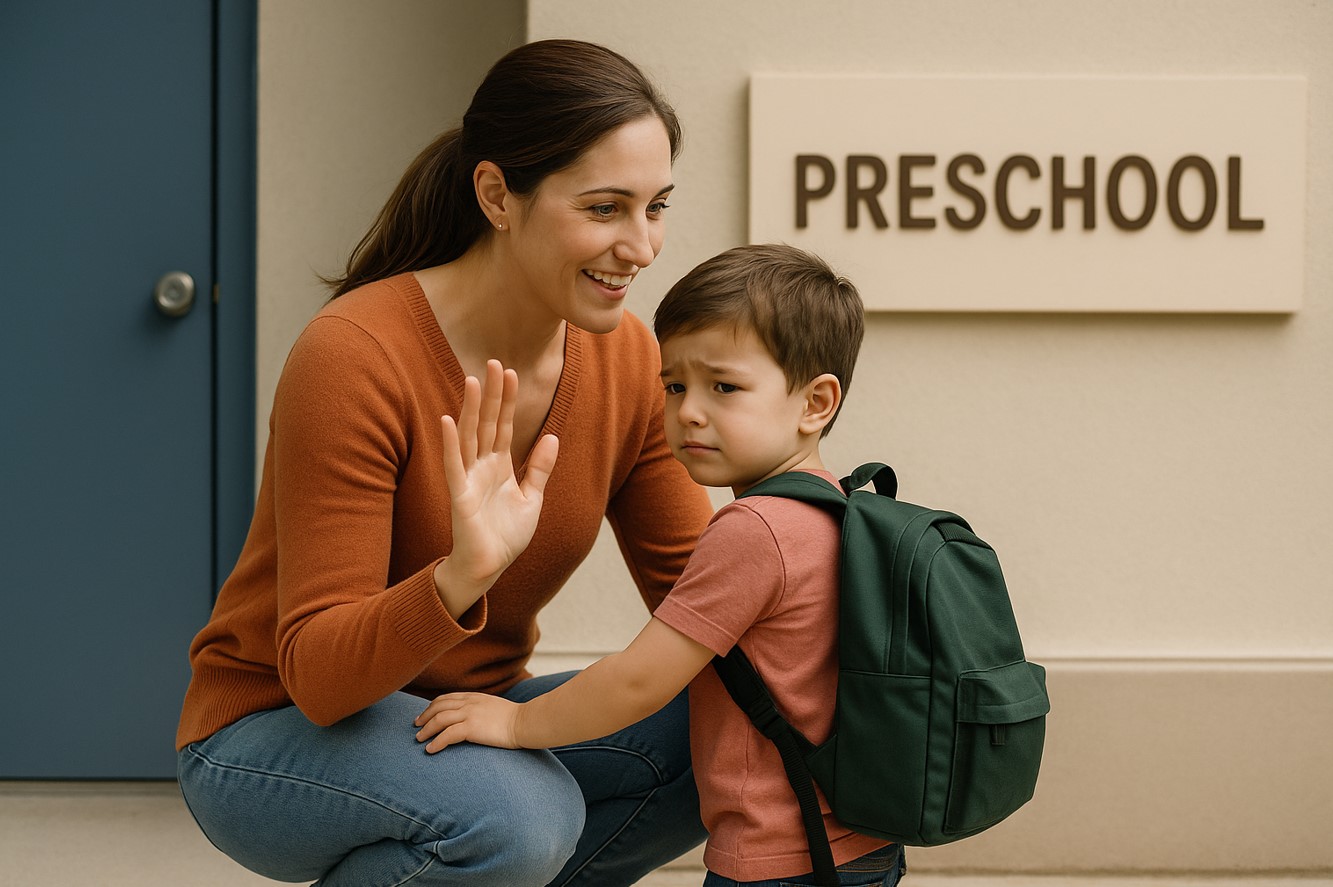May

Tactics for Smoother Goodbyes at Preschool
Preschool drop-off can feel like a scene from a drama: one minute your child is happily munching toast, the next they’re clinging to your leg like it’s the end of the world. Sound familiar?
If you're navigating the emotional highs and lows of separation anxiety, you're not alone. The good news? It doesn’t last forever — and there are simple strategies that can make mornings calmer for both of you.
Why Separation Anxiety Happens
Preschoolers are learning to balance independence with attachment. Saying goodbye, even just for a few hours, can feel overwhelming. For them, it’s not just a physical separation — it’s emotional too.
And yes, it’s hard for you as a parent, too. Seeing your child upset can stir up guilt, worry, or doubt. But these big feelings are part of growing up — for both of you.
7 Tried-and-True Tips for Easier Drop-Offs
1. Stick to a Predictable Morning Routine
A simple, consistent routine helps your child feel safe and in control. Try keeping mornings calm and steady — the same wake-up time, breakfast, brushing teeth, and heading out the door in the same order each day.
Pro Tip: Do as much as you can the night before (clothes, bags, snacks) to keep mornings stress-free.
2. Keep Goodbyes Short and Sweet
It’s tempting to linger or sneak out, but these usually make things harder. Instead, give a warm hug, say your goodbye confidently, and leave. Your child takes their emotional cues from you — if you seem okay, they’ll learn to feel okay too.
3. Create a Special Goodbye Ritual
Make your own parting moment — a handshake, a rhyme, or even “two kisses and a wiggle wave.” These mini rituals offer reassurance and turn a tough moment into something fun and predictable.
4. Stay Upbeat
Even if your heart breaks a little each time, try to keep your tone light. Instead of saying, “I’ll miss you so much!” try “I’m excited to hear all about your day when I pick you up!”
5. Send a Comfort Item
If allowed, tuck a small item into your child’s backpack — a stuffed animal, a smooth stone from home, or a family photo. A little piece of home can go a long way in easing the transition.
6. Talk About It Ahead of Time (Briefly!)
Mention what’s coming — “Tomorrow is preschool day!” — and talk about what they'll do and when you'll return. Keep it simple and reassuring. Avoid turning it into a big deal.
7. Trust the Teachers
Preschool staff are experienced at comforting children during drop-offs. Most kids settle within minutes of parents leaving. If you’re unsure, ask the teacher for an update after drop-off.
A Note for You, the Parent Letting go is a big step — not just for your child, but for you too.
It’s okay to feel emotional. Try creating your own post-drop-off routine — a warm drink, a deep breath, a quick walk. You’re doing something meaningful by supporting your child’s independence.
It Will Get Easier
At first, it may feel like drop-offs will always be dramatic. But with time and consistency, the tears fade. Soon, your little one will be racing into the classroom without a second glance… and you might find yourself missing those clingy hugs (just a little).
So take heart — separation anxiety is a sign of strong attachment, not weakness. And every goodbye builds the foundation for confidence and trust.
You’ve got this. And so does your child.

